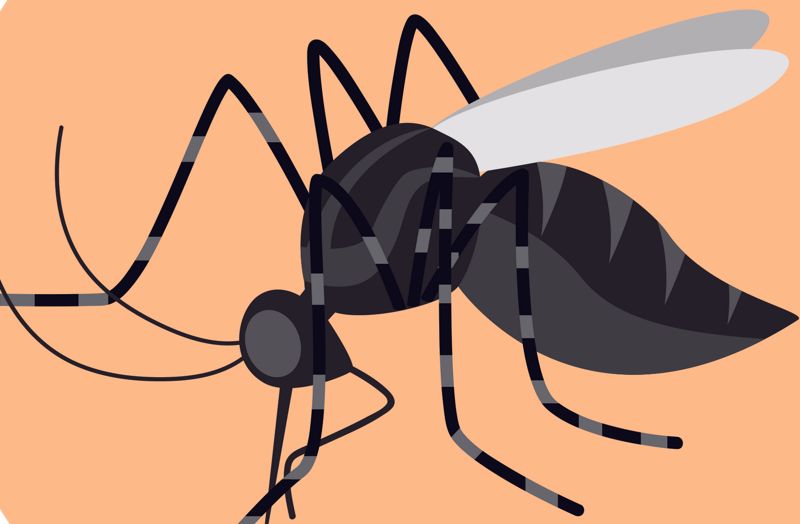
Photo for representational purpose only. File photo
In view of the recent surge in dreaded dengue fever cases from different parts of Ludhiana, Nitin Jain talked to medical experts to know 10 commonly asked questions and answers regarding the disease. Here are questions with their answers for prevention, detection and cure of dengue:
What is dengue?
Dengue is a viral infection that can lead to fever (dengue fever syndrome) and can sometimes result in severe bleeding (dengue haemorrhagic fever) and shock (dengue shock syndrome).
How can one get infected by the dengue virus?
The Aedes mosquito spreads the dengue virus. This mosquito bites humans during daytime and breeds in relatively clean water stored for drinking or washing purposes and in rainwater that collects in various containers like tyres, bottles, tanks, plastic bottles etc.
Who can get this disease?
People of all ages and both sexes who are exposed to mosquito bites can get this disease. Children usually have a milder disease than adults.
How can a patient with dengue present himself in the clinic?
There are basically four ways in which a patient with dengue presents himself:
Mild uncharacteristic fever.
“Break-bone” fever characterised by chills, high fever, severe headache, and rash spreading from trunk to extremities, muscle and joint pains preventing all movements for nearly five days.
DHF or dengue haemorrhagic fever abrupt onset, high continuous fever lasting for 2-7 days with bleeding patches under skin, nose bleeding, gum bleeding, blood vomit, black tarry stools, capillary leakage (ascites and pleural effusion), low platelet count and around 20 per cent rise in haematocrit.
DSS or dengue shock syndrome shows all the signs and symptoms of DHF with cold clammy skin, weak and rapid pulse, hypotension and narrow pulse pressure.
- How does one differentiate dengue fever complicated by bleeding from DHF?
- Dengue fever with bleeding
- Bleeding from pre-existing lesions
- Capillary leak (ascites and pleural effusion) seen
- Liver usually not enlarged
- Haematocrit falls
- Leucopaenia (fall in WBC count)
- Mild fall in platelet count (rarely less than 1,00,000/mm3)
DHF
- Bleeding under skin and from all mucosal surfaces like peptic ulcer
- Capillary leak (ascites and pleural effusion) not seen
- Liver enlargement noticed in 1-2 days
- Haematrocrit rises by 20 per cent or more
- Leucocytosis (rise in WBC count)
- Severe fall in platelet count (usually 1,00,000/mm3)
How is a patient with dengue fever managed?
There is no specific drug or vaccine available that acts against the dengue virus. Management follows general principles:
- Bed rest under a mosquito net
- Sponge for high fever
- Paracetamol for pain and fever
- Avoid aspirin and other such drugs that can reduce platelet count and increase bleeding
- Check vital signs, haematocrit, urine output for signs of dehydration and electrolyte imbalance
- Rapid intravenous replacement of fluids and electrolytes to sustain patient till recovery occurs
- Plasma or plasma colloid preparations should be given if the haematocrit remains elevated. Care should be taken to avoid over-hydration and pulmonary oedema (should this occur, diuretics may be used)
- Benzodiazepines (e.g. diazepam) may be given to calm patients
Can remaining in close contact with the dengue patient pass on the disease?
No, the disease cannot be spread by direct contact. It spreads only via Aedes mosquito bite. The transmission route is ‘Man-Mosquito-Man’.
Is there any vaccine to control the spread of dengue?
A live-attenuated vaccine is in the final stages of development in Thailand and France.
How does one prevent the virus from spreading?
This can be achieved by protecting individuals from mosquito bite (sleeping under a mosquito net, using insect repellents) and by controlling the Aedes mosquito population in the area.
How can the population of Aedes mosquito be brought under control?
The anti-mosquito measures include:
- Reduce Aedes mosquito breeding ground by getting rid of water-holding containers such as discarded tins, tyres, empty pots and broken bottles.
- Destroy larvae by adding oil to water collected in small ponds etc.
- Kill adult mosquitoes by spraying insecticides.
Join Whatsapp Channel of The Tribune for latest updates.



























